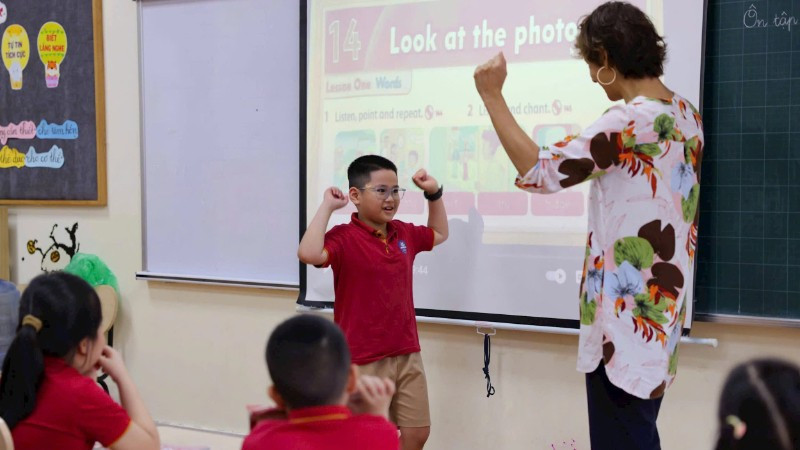
In Vietnam, the foreign language proficiency of students is increasingly improving. However, the implementation of teaching and learning English has not really met the requirements. Therefore, on October 27, 2025, the Prime Minister issued Decision No. 2371/QD-TTg approving the Project "Making English the second language in schools for the period 2025-2035, with a vision to 2045".
Three levels of education, three goals
The name of the project is clearly defined as "Making English the second language in schools" to improve English proficiency for children, pupils and students; contributing to the development of Vietnamese people in the age of science and technology, the digital age, and enhancing international integration.
In addition to the goal of becoming a second language, the project also aims to use English widely, regularly and effectively in school educational activities; forming an ecosystem of English use in educational institutions with increasing levels. For preschool education, the goal is to help children experience, get acquainted, and aim to form and develop communication skills, preparing well for learning English at the secondary level.
For general education, the project's goal is to help students form and develop their capacity and skills in using English in developing their thinking and qualities, learning capacity of subjects, educational activities, communication, and experience inside and outside of school. The project also sets a goal for university education to develop an effective English-using environment in teaching subjects, modules, and credits in the training program; in training and fostering the team of teachers, lecturers, etc.
According to the Ministry of Education and Training, the project is applied in all educational and training institutions; it will impact about 50,000 educational institutions with nearly 30 million children, pupils, students and about one million managers and teachers at all levels and fields of study. The project implementation period is 20 years (from 2025-2045), including three main phases. Of which, phase 1 (2025-2030) is to build and standardize, ensuring a solid foundation for English to be used regularly and systematically in the educational environment. Phase 2 (2030-2035) expands and promotes the use of English more frequently. Phase 3 (2035-2045) completes and enhances so that English is used naturally, developing an ecosystem for use in the educational environment, communication and school administration...
Prepare good conditions, suitable for the locality
In fact, the teaching of English in recent times has shown that in favorable areas, urban areas, students have quite good learning conditions and ability to use this language. However, in some rural areas of Bac Ninh province, the teaching and learning of English has also revealed some difficulties and limitations.
According to teacher Ngo Quang Khai, Principal of Yen Dung High School No. 3 (Canh Thuy Ward), one of the school's biggest concerns is that the teaching and learning results of English are still limited because most of the students live in rural areas and have little exposure and investment from a young age.
In the 2025 high school graduation exam, the school only had 84 students registered for this subject, with an average score of 4.98 while the provincial average score was 5.28. Therefore, the school is urgently innovating teaching and testing methods, and evaluating; enhancing communication skills for students; differentiating teaching by subject; training teachers; encouraging the use of English in school announcements, on bulletin boards, team activities, and recess.
Teacher Tong Thi Minh Loan, Vice Principal of Dong Phuong B Primary School (Yen Tu Ward, Quang Ninh Province) said that in addition to implementing many synchronous solutions, currently, in the teaching process, teachers communicate entirely in English; teach all four skills of listening, speaking, reading, and writing, in which listening and speaking skills are prioritized, creating opportunities for students to practice after each lesson, thereby contributing to improving the quality of the subject.
To effectively implement the project approved by the Prime Minister, the Department of Education and Training of Quang Ninh province directed educational institutions to improve the quality of foreign language teaching, especially English; and prepare good conditions to ensure the gradual introduction of English as a second language in educational institutions.
Director of the Department of Education and Training of Hai Phong city, Luong Van Viet, said that the Hai Phong education sector has had many solutions; gradually building a learning environment using English as a second language; encouraging educational institutions to implement bilingual programs, cooperating in teaching with foreign teachers suitable to local conditions.
According to the Director of the Department of Education and Training of Ninh Binh province, Nguyen Tien Dung, the locality is implementing a program to familiarize with English for grades 1 and 2 (two periods/week, on a voluntary basis); continuing to implement the Project to enhance English teaching with foreign teachers in a number of schools (in the old Nam Dinh province); encouraging schools to organize lessons connecting with schools in, outside the province and abroad. For higher education levels, the locality continues to implement the plan to improve the quality of teaching and learning English through school-level English Clubs, organizing foreign language festivals such as: Halloween, English speaking contests at school level, cluster level...)
Source: https://nhandan.vn/phat-trien-nang-luc-tieng-anh-cho-hoc-sinh-post924399.html



![[Photo] Visit Hung Yen to admire the "wooden masterpiece" pagoda in the heart of the Northern Delta](/_next/image?url=https%3A%2F%2Fvphoto.vietnam.vn%2Fthumb%2F1200x675%2Fvietnam%2Fresource%2FIMAGE%2F2025%2F11%2F21%2F1763716446000_a1-bnd-8471-1769-jpg.webp&w=3840&q=75)
![[Photo] National Assembly Chairman Tran Thanh Man holds talks with President of the Senate of the Czech Republic Milos Vystrcil](/_next/image?url=https%3A%2F%2Fvphoto.vietnam.vn%2Fthumb%2F1200x675%2Fvietnam%2Fresource%2FIMAGE%2F2025%2F11%2F21%2F1763715853195_ndo_br_bnd-6440-jpg.webp&w=3840&q=75)
![[Photo] General Secretary To Lam receives President of the Senate of the Czech Republic Milos Vystrcil](/_next/image?url=https%3A%2F%2Fvphoto.vietnam.vn%2Fthumb%2F1200x675%2Fvietnam%2Fresource%2FIMAGE%2F2025%2F11%2F21%2F1763723946294_ndo_br_1-8401-jpg.webp&w=3840&q=75)
![[Photo] President Luong Cuong receives Speaker of the Korean National Assembly Woo Won Shik](/_next/image?url=https%3A%2F%2Fvphoto.vietnam.vn%2Fthumb%2F1200x675%2Fvietnam%2Fresource%2FIMAGE%2F2025%2F11%2F21%2F1763720046458_ndo_br_1-jpg.webp&w=3840&q=75)

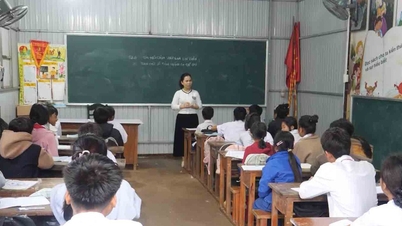

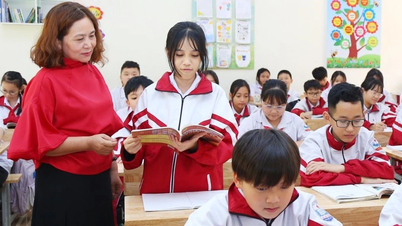













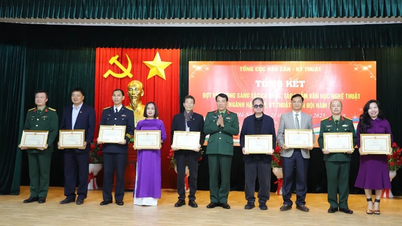



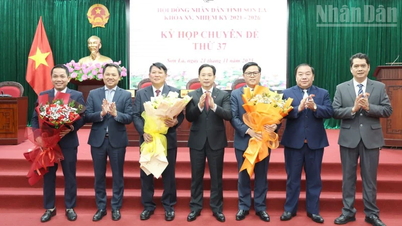


























































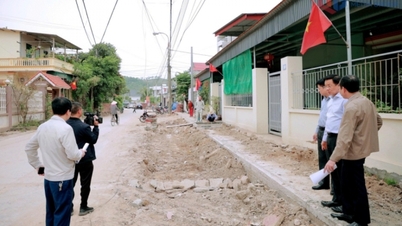


















Comment (0)